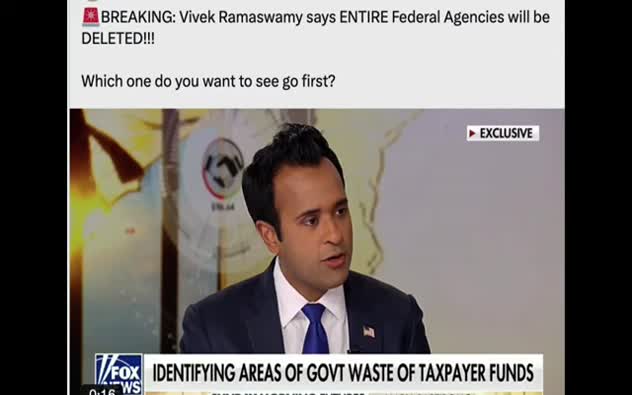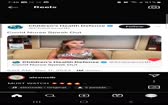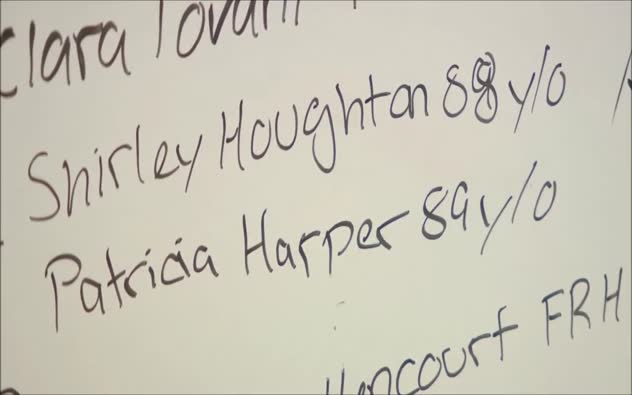Advertisement
Nurse Speaks Out on Covid
I know that at this point we’re sorta saturated in this type of content, but I thought it important to get another first hand account from someone who saw something, said something and was systematically fired for it.
- Category: Uncategorized,Covid Related
- Duration: 14:26
- Date: 2023-12-14 01:57:09
- Tags: covid
4 Comments
Video Transcript:
Hello, the hospital protocol. Yes, killing. Well, I think one of the important things about my situation is that I was working in the Bay Area of California, where we had one of the most compliant populations in the country. So we were compliant with not just the lockdowns and the masking, but also the COVID injections. So in my community, when COVID was first announced, and they locked down the hospitals, and they stopped the elective surgeries, our hospital completely emptied out. And this was one of the, this was when I really first saw that we were being lied to, because the public was being told in the news that the hospitals were full and overwhelmed, and they weren't. I had colleagues all over the state of California who worked in units all over the hospital in the acute care setting and not once during that first year of COVID in 2020 in the winter of 2021, where our hospitals overwhelmed. I would say there was during the winter of 2020 and 2021, when this happens every year, people come in with the flu and hospitals fill. It happens every year. It's been doing that for 12, the whole 12 years I've been working in the acute care setting. So it was not unusual. We were not overwhelmed, and the public was being lied to. So that really opened my eyes to the fact that there were things going on that shouldn't have been going on. And then with the rollout of the isolation, they also started the COVID protocols. And I didn't notice right away the harm of these protocols until I had to tell family members that they couldn't come to the bedside of their dying loved ones. That, to me, was a crime against humanity and a violation of my oath that I knew right away should not have been happening. We isolate people in prison. We put them in the brig when they've done something wrong to torture them. And that's what I felt like I was being forced to do when I had to tell my patients' family members when they couldn't come into the hospital to be near their dying loved ones. So those small kinds of violations that I was recognizing, I think really helped me accept that I needed to more critically analyze what I was being told to do and what was happening around me in the hospital. So after going through those two things at the beginning of the COVID lockdowns, it really helped me to stop and think when I was being told to do things. Like the next thing was the administration of Remtussevere. This was an experimental use authorization medication. It was the only drug that we were allowed to administer to patients who were hospitalized with COVID and it was an anti-viral. And I'd been taught in my undergrad, my bachelor's degree program for nursing that you do not administer an anti-viral more than 24 to 48 hours post-symptom onset for a viral infection. And so this medication was being given to patients who were hospitalized with COVID, usually not until between 10 and 12 days post-symptom onset. So I would ask my colleagues, why are we giving this medication, the administrators, my hospital, why are we doing this? And their eyes would glaze over. And I would say to them, we have evidence showing that the administration of anti-virals more than two days post-symptom onset has causes more harm than good. The risk-benefit analysis does not correlate. And in addition to that, this was an experimental use product. And I knew that each one of those doses was over $3,000. So that was another huge red flag. In addition to that, the next part of the COVID protocols that was so extremely disturbing to me was the fact that at the onset of hospitalization for COVID, there were a team of respiratory intensiveists who went before Congress and showed them how effective high dose steroids were for the treatment of patients who had COVID. And not only were we ignoring those recommended patients for high dose steroids, they were actually blocking it from our hospitals to use. So we have patients coming in who are being feared to death by the media. They're being isolated from their loved ones. They're having steroid treatments. So I'll say one more thing about these steroids because this is really important. The COVID, whatever it was, virus, whatever COVID was, it caused more inflammation than we had ever seen in the hospital. So there's lab value called CRP. And even with influenza and things like this, we had never seen the inflammatory marker of CRP jump so high as we did with COVID. So for the government and the CDC and these three-letter organizations to tell practitioners that they could not administer steroids, which is the, this is the best treatment for an inflammatory process. It was absolutely criminal. You can't withhold steroids for the most inflammatory disease process that humanity has ever seen. So we have isolation of patients, fear mongering from the media with holding steroids and the administration of Ram D'SaBier. Those were the things that I went to work and had to manage where every day felt like I was violating my oath as a practitioner. And ultimately, it wasn't until after the rollout of the shots where I just couldn't do my job anymore. So that was the next part of what I witnessed. So I, like I said earlier, worked in the Bay Area of California for an organization called Kaiser Permanente and they have a full scope of care. They're a structure set up to where you get your primary care, your acute care, the pediatricians, all of the medications and your vaccines, all in the same organization. So with the COVID vaccine, they were administering it at my hospital. So when in February, so they released the shots, these shots to the practitioners in January of 2021. But they didn't release it to the public until close to the end of February. So by the beginning of March, I was starting to notice that my hospital was becoming slammed. And this is unusual because we get winter rushes. This is how the hospital works. It's dead in the summer and it's full in the winter. Like this is the cycle. And so I started noticing in March of 21 that it was very peculiar that I was starting to get all these calls to come to work because the hospital was understaffed. And it did not stop. I was in graduate school at the time for my double nurse practitioner degree. So I would do three weeks at the hospital and then I take some time off and study for my schooling. So by June, when I went into the hospital, I was there for three weeks, three weeks from March to April and then another three weeks in the middle of June to the beginning of July. And I was working nonstop. I would work doubles basically every single shift. I was getting phone calls three times, sometimes four times a day to come to work because they were so understaffed at the hospital. And then in June, my manager approached me and he said to me, Gail, this hospital has had three times more admissions than we have ever had since the hospital opened their doors. So that's a 300% increase in hospitalizations directly associated to the onset of these shots. So... Did you mind me asking what you were saying? You were saying heart condition blood plus all of that? Yeah, I think COVID. So and this was actually, so during that week, it was the end of June. It was around the 28th of that month when my manager came up to me and said this to me. And during that week, I had mentioned I was working doubles basically every shift I worked. And because of my position, being in grad school, I held the position called per DM. So what that means is that oftentimes, when I come to work, I end up filling in. I'll float to wherever they need me in the hospital. So on that shift when my manager had told me that we had had three times more admissions than they'd ever seen, there was that day, the next day I came in and worked a double and I split that 16 hours between two different units. And I got report on every single patient on both of those units. And this is really when it hit me. That these were injection injuries because that's about 30 patients per unit. I got report on every single one was there for some peculiar clot that I'd never heard of. Stroke, a heart attack. I had seen by that day four patients with rapid onset gilion beret. In my entire career, I'd seen two. 10 years as a nurse in acute care. I take in care of two patients with gilion beret within a few short week period of time I'd seen four. And I had the opportunity to ask two of those patients directly what they thought was the cause of the onset of their gilion beret and two of them did tell me that they had received those COVID shots within 24 hours of onset of symptoms. And so from there, I approached my managers and I said, I have gotten report on two units full of patients that are all having the weirdest set of symptoms and several of them are confirming that they've just gotten these COVID vaccines. How can I report this? And my direct managers response was, we cannot report these because we cannot prove that these are what is the cause, that these shots are what is causing these injections. One of my colleagues who was actually the nurse at the COVID injection clinic, she approached me one day and she will not come publicly to say this because she's afraid of losing her job. But she had asked her manager the same thing and they told her that if she reported a single adverse event, she would be fired. So we were constantly under pressure, not to report. All of my concerns regarding the COVID protocols for hospitalized patients were not being addressed. I mentioned multiple times that I felt like we were violating our oaths I was ignored. So it was shortly after that time in June of 21 when I had illegal documents, process served to several members of my hospital and they fired me in retaliation for trying to hold an accountable for what I was witnessing. But I ask myself a lot. I think that really one of the most important things to really notice here is people say to me, like, oh, like, you know, why are you coming forward and your colleagues aren't? And I want to really recognize here how it is that I ended up in this position because I think that I noticed when this was all happening that there was probably about 30% of my colleagues who saw what I was seeing. And it is, it's like this attention to detail, critical thinking, ability to really deeply analyze what you're seeing and then continue to dig into why it was happening. And so there are these types of skills in combination with the fact that I was, I didn't go to public school in high school and it really reminded me of that. This whole situation on the COVID floors, it reminded me of how I felt in high school when I was homeschooled and I wasn't with the in crowd. And I saw this happening with my colleagues. I saw them wanting to be with the in crowd. They didn't want to rock the boat. They didn't want to potentially jeopardize their income. They had mortgages and so they chose to, you know, do what was easy.










 Donate
Donate

